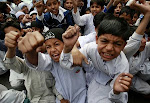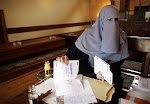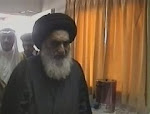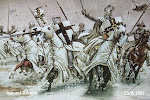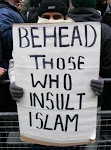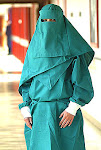Monday, December 1, 2008
Delusions of the EU
Turkey, however, is a special case in the United Nations. It is the only country that participates as a full member in two regional groups. As it geographically belongs to Asia, Turkey is also a member of the Group of Asian States. And as an Islamic country Turkey is also a member – and a prominent one – of the Organization of the Islamic Conference (OIC) which includes all Islamic states from Senegal to Indonesia and which is also recognized by the UN.
As a consequence, Turkey eats from three different baskets, depending on whether it invokes its geographical position in Asia, its religious character or its European component. The peoples of Europe do not seem to regard Turkey as a European country. The general expectation is that if the governments of the European Union member states were to put it to a vote in a referendum the people of Europe would reject the admission of Turkey to the EU.
Four years ago, Brussels and Ankara started negotiations intended to lead to Turkey becoming an EU member. The issue is highly controversial because the economic and institutional consequences of Turkey’s admission will be far-reaching for the EU.
To raise Turkey to a European standard of living would require enormous and sustained efforts of wealth redistribution from the European taxpayers, which would impoverish Europe without a guarantee of success in Turkey. Moreover, if Turkey joins the EU, an additional 80 million people become EU citizens. As an EU member, Turkey will be the most populous member with the highest number of representatives in the European Parliament. In the European Council it will be on a par with the present Big Ones. Its foreign interests will dominate Europe’s. Turkey is too big for Europe to swallow.
What worries ordinary Europeans most, however, is that the 80 million potential additional EU citizens are Muslims. Does it serve the interests of the West if the largest member state of the EU is an Islamic country?
Some think it does. They believe that Turkish EU membership will turn the country into a democratic state and an example for other Muslim nations, and hence prove that Islam and democracy can be reconciled. But what if they are wrong? Many ordinary Europeans would rather play safe. However, that is not the attitude of the political establishment.
There are strong indications that the EU establishment in Brussels already considers Turkey to be a member of the European club in all but name. Turkish ministers are already allowed to participate in EU deliberations.According to Pierre Lellouche, a parliamentarian of France’s governing party whom President Sarkozy has given the task of “relaunching Franco-Turkish relations,” Islamism will be defeated by bringing Turkey into Europe. “We have next door to us, a great secular Muslim country that wants to share our values. It is making the necessary reforms. We would be crazy to say no,” Mr Lellouche says.
He is, however, opposed to putting the matter of Turkey’s EU admission before the French electorate in a referendum because this is “to pollute the debate” with the fear of Islam. “Some play around with the fear factor: that is unworthy. Turkey is not Islamism or terrorism. Because of the fear of Islam and of Arabs, we are saying no for the wrong reasons.”
The question, however, is whether those who say yes to Turkey are not doing so for the wrong reason, namely to prove their point that Islam and democracy are compatible.
Why is it that, after 13 centuries of preserving European identity by opposing Muslim attempts to conquer Europe, some claim that Europe can only preserve its identity, its values and its freedoms by opening its doors to Turkey? Why can Turkey not remain free and democratic and “share our values” without becoming European? Is representative democracy only possible in Europe? Is secularism Europe’s only defining element?
Does it serve the interests of democracy and the West that the largest member state of the EU is an Islamic country, when ordinary Europeans oppose it? Is so, why should it not serve the interests of democracy and the West that Mexico becomes the largest member state of the USA? Does the religion of the Turks – even those of the secularized Muslims – matter to ordinary Europeans? Yes, it does. It matters as much as the language of the Hispanics matters to ordinary Americans. Only politicians intent on changing the nature of the peoples they were elected to represent do not care about such things.
Minneapolis: Imam, mosque official barred from flight to Saudi Arabia
The attorney said it's likely the men are on a federal "no fly" list because they and the mosque have been connected by rumor to a number of missing Somali men whose families fear have returned to their East African homeland to fight in that nation's civil unrest or to receive terrorist training.
The FBI, which has been investigating alleged links between some in Minneapolis' large Somali refugee community and the strife in that nation, would not comment on the airport incident. The scope of any such links, if they exist, remains unclear.
Sheikh Abdirahman Ahmed of Abubakar As-Saddique, a large mosque in the Cedar-Riverside area of Minneapolis, and the mosque's youth coordinator, who did not want to give his name, were not allowed to board a flight at Minneapolis-St. Paul International Airport, but were not told why. The youth coordinator said others in a group that planned to make the trip -- a hajj, or spiritual pilgrimage to Mecca and Medina-- also were not allowed to board, but he did not know how many people were involved.
Mahir Sherif, a California attorney who represents Abubakar as well as other Somali mosques across the country, said there are many possible reasons why the men are on the federal Transportation Security Administration's "no fly" list, which as of mid-August contained about 50,000 names. But he suspects that the reasons are linked to stories circulating in the Somali community that the mosque has been used to indoctrinate and train young men to return to Somalia -- stories that Sherif strongly denied Sunday.
"We think, we suspect, there is some kind of formal investigation [of the mosque] being conducted by the FBI right now," Sherif said. "What gave me more evidence that there is some kind of official investigation going on was that the second man was kept from boarding. He is head of a youth group at the masjid [mosque]."...
Jihadist "planned Mumbai-style massacre in Britain"
Kazi Nurur Rahman, from east London, was associated with the same terrorist group that is accused of the attack in India which killed almost 200 people.
He was arrested in a sting operation as he tried to buy three Uzi submachine guns and 3,000 rounds of ammunition.
He had talked of buying up to five weapons, hand grenades and as many bullets as possible along with Russian-made rocket-propelled grenades and SAM-7 surface-to-air missiles.
When police raided Rahman's home they found a scanner which enabled him to listen in to police radios along with information on guerrilla warfare.
Counter-terrorism police believe Rahman was planning to arm a gang of associates.
One senior officer told the Daily Telegraph: "This was definitely part of a larger order and the fact that he tried to buy three submachine guns means you only have to do the maths to know he was not the only one involved."
Police also accept that, had he succeeded in buying the weapons, it would have been difficult to stop a massacre on a similar scale to India.
Rahman, 31, was an associate of Omar Khyam, the leader of a gang plotting to blow up Bluewater shopping centre or the Ministry of Sound nightclub with a fertiliser bomb.
Khyam trained with Lashkar-e-Taiba (Let) the Kashmiri separatist group accused of the Mumbai (formerly Bombay) massacre, before he turned to al-Qaeda....
Mumbai jihadists refused Islamic burial: "People who committed this heinous crime cannot be called Muslim. Islam does not permit this sort of barbaric
A Muslim graveyard has refused to bury nine gunmen who terrorized Mumbai over three days last week, leaving at least 172 people dead and wreaking havoc at some of its most famous landmarks.
The men are not true followers of the Islamic faith, according to the influential Muslim Jama Masjid Trust, which runs the 7.5-acre (three-hectare) Badakabrastan graveyard in downtown Mumbai.
"People who committed this heinous crime cannot be called Muslim," said Hanif Nalkhande, a trustee. "Islam does not permit this sort of barbaric crime." [...]
While Nalkhande said several Islamic scholars had backed the trust's decision, some also criticized the move.
Even militants must be given a proper burial, said scholar Maulauna Zubair Ahmed.
"As per the Shariah, the trust cannot say no," he said, referring to Islamic law. "The Shariah says whether a Muslim is a drunkard, rapist, criminal, you must offer him a place for burial."...
Welcome to the Police State: 20,000 uniformed troops inside U.S. by 2011
 This is what we do not need with Obama as president. Troops in the streets. If we need troops anywhere it would be Dearbornistan, MI, but we all know that Obama is really a muslim and is going to take away our rights. ACLU, you better get your lawyers ready.
This is what we do not need with Obama as president. Troops in the streets. If we need troops anywhere it would be Dearbornistan, MI, but we all know that Obama is really a muslim and is going to take away our rights. ACLU, you better get your lawyers ready. The U.S. military expects to have 20,000 uniformed troops inside the United States by 2011 trained to help state and local officials respond to a nuclear terrorist attack or other domestic catastrophe, according to Pentagon officials.
The long-planned shift in the Defense Department's role in homeland security was recently backed with funding and troop commitments after years of prodding by Congress and outside experts, defense analysts said.
There are critics of the change, in the military and among civil liberties groups and libertarians who express concern that the new homeland emphasis threatens to strain the military and possibly undermine the Posse Comitatus Act, a 130-year-old federal law restricting the military's role in domestic law enforcement.
But the Bush administration and some in Congress have pushed for a heightened homeland military role since the middle of this decade, saying the greatest domestic threat is terrorists exploiting the proliferation of weapons of mass destruction.
Before the terrorist attacks of Sept. 11, 2001, dedicating 20,000 troops to domestic response -- a nearly sevenfold increase in five years -- "would have been extraordinary to the point of unbelievable," Paul McHale, assistant defense secretary for homeland defense, said in remarks last month at the Center for Strategic and International Studies. But the realization that civilian authorities may be overwhelmed in a catastrophe prompted "a fundamental change in military culture," he said....





